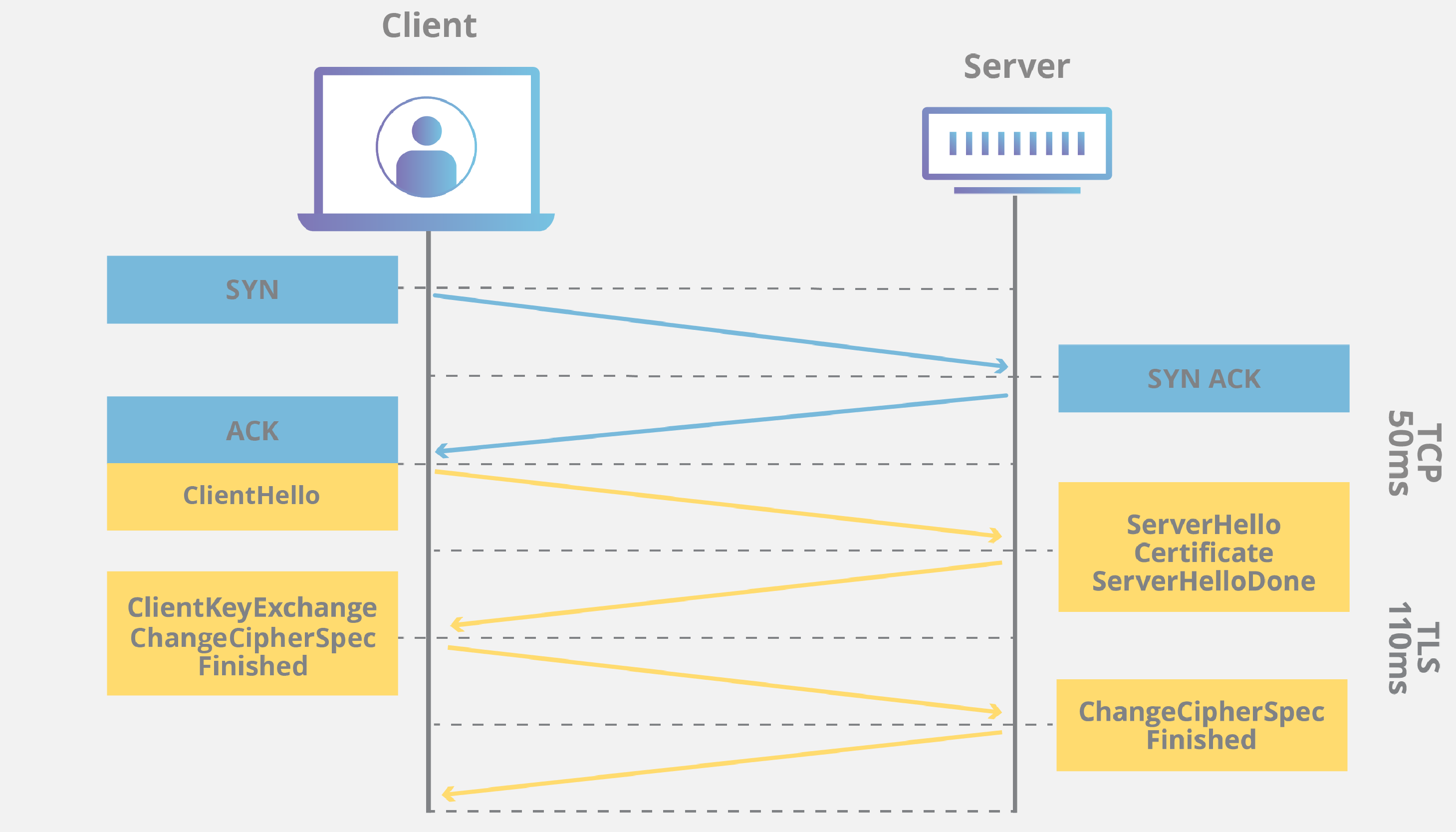老旧的SSH客户端连不上服务器:no hostkey alg
这篇博客记录一下如何解决旧版本的 SSH 客户端在连接服务器时出现 no hostkey alg 的问题。
问题描述
使用 SSH 连接服务器时,连接无法建立:
1
2
$ ssh GUYUHAO-UBUNTU
no hostkey alg
我的 SSH 客户端版本:
1
2
$ ssh -V
OpenSSH_5.3p1, OpenSSL 1.0.1e-fips 11 Feb 2013
我的 SSHD 服务器版本:
1
2
3
$ sshd -V
unknown option -- V
OpenSSH_8.9p1 Ubuntu-3ubuntu0.6, OpenSSL 3.0.2 15 Mar 2022
可见差别是有点大,底层 OpenSSL 库都不一样了(1 vs 3)。
解决过程
报错信息是什么意思?
老版本的 SSH 错误信息真的很坑爹,
no hostkey alg中的alg是algorithm的缩写,意思是没有找到合适的算法。OpenSSL 从 1.0 升级到 3.0 后,由于密码学研究的进步,发现了许多旧算法的安全隐患,因此同时弃用了一些旧算法。而老版本的 SSH 客户端只支持旧算法,因此无法连接新版本的 SSHD 服务器。
为了解决这个问题,简单的办法就是更新客户端或者服务器到最新版本。但是有时候这并不是我们能控制的,在我这里,我只能控制服务器,所以下面就是要给服务器额外添加一些算法的支持。
让 SSH 客户端打印出详细的调试信息,找出客户端支持哪些算法:
使用
ssh -vvv GUYUHAO-UBUNTU打印调试信息,3 个v表示 3 级调试信息。1 2 3 4 5 6 7 8 9 10 11 12 13 14 15 16 17 18 19 20 21 22 23 24 25 26 27 28 29 30 31 32 33 34 35 36 37 38 39 40 41 42 43 44 45 46 47 48 49 50 51 52 53
OpenSSH_5.3p1, OpenSSL 1.0.1e-fips 11 Feb 2013 debug1: Reading configuration data /.../.ssh/config debug1: Applying options for GUYUHAO-UBUNTU debug1: Reading configuration data /etc/ssh/ssh_config debug2: ssh_connect: needpriv 0 debug1: Executing proxy command: exec /usr/bin/nss_yhpc_ssh_proxy 172.16.170.177 22 debug1: permanently_drop_suid: 11257 debug1: identity file /.../.ssh/identity type -1 debug1: identity file /.../.ssh/identity-cert type -1 debug1: identity file /.../.ssh/id_rsa type -1 debug1: identity file /.../.ssh/id_rsa-cert type -1 debug1: identity file /.../.ssh/id_dsa type -1 debug1: identity file /.../.ssh/id_dsa-cert type -1 debug1: identity file /.../.ssh/id_ecdsa type -1 debug1: identity file /.../.ssh/id_ecdsa-cert type -1 debug1: Remote protocol version 2.0, remote software version OpenSSH_8.9p1 Ubuntu-3ubuntu0.6 debug1: match: OpenSSH_8.9p1 Ubuntu-3ubuntu0.6 pat OpenSSH* debug1: Enabling compatibility mode for protocol 2.0 debug1: Local version string SSH-2.0-OpenSSH_5.3 debug2: fd 5 setting O_NONBLOCK debug2: fd 4 setting O_NONBLOCK debug1: SSH2_MSG_KEXINIT sent debug3: Wrote 864 bytes for a total of 885 debug1: SSH2_MSG_KEXINIT received debug2: kex_parse_kexinit: diffie-hellman-group-exchange-sha256,diffie-hellman-group-exchange-sha1,diffie-hellman-group14-sha1,diffie-hellman-group1-sha1 debug2: kex_parse_kexinit: ssh-rsa-cert-v01@openssh.com,ssh-dss-cert-v01@openssh.com,ssh-rsa-cert-v00@openssh.com,ssh-dss-cert-v00@openssh.com,ssh-rsa,ssh-dss debug2: kex_parse_kexinit: aes128-ctr,aes192-ctr,aes256-ctr,aes128-cbc,3des-cbc,blowfish-cbc,cast128-cbc,aes192-cbc,aes256-cbc,rijndael-cbc@lysator.liu.se debug2: kex_parse_kexinit: aes128-ctr,aes192-ctr,aes256-ctr,aes128-cbc,3des-cbc,blowfish-cbc,cast128-cbc,aes192-cbc,aes256-cbc,rijndael-cbc@lysator.liu.se debug2: kex_parse_kexinit: hmac-sha1,umac-64@openssh.com,hmac-sha2-256,hmac-sha2-512,hmac-ripemd160,hmac-ripemd160@openssh.com,hmac-sha1-96 debug2: kex_parse_kexinit: hmac-sha1,umac-64@openssh.com,hmac-sha2-256,hmac-sha2-512,hmac-ripemd160,hmac-ripemd160@openssh.com,hmac-sha1-96 debug2: kex_parse_kexinit: none,zlib@openssh.com,zlib debug2: kex_parse_kexinit: none,zlib@openssh.com,zlib debug2: kex_parse_kexinit: debug2: kex_parse_kexinit: debug2: kex_parse_kexinit: first_kex_follows 0 debug2: kex_parse_kexinit: reserved 0 debug2: kex_parse_kexinit: curve25519-sha256,curve25519-sha256@libssh.org,ecdh-sha2-nistp256,ecdh-sha2-nistp384,ecdh-sha2-nistp521,sntrup761x25519-sha512@openssh.com,diffie-hellman-group-exchange-sha256,diffie-hellman-group16-sha512,diffie-hellman-group18-sha512,diffie-hellman-group14-sha256,kex-strict-s-v00@openssh.com debug2: kex_parse_kexinit: rsa-sha2-512,rsa-sha2-256,ecdsa-sha2-nistp256,ssh-ed25519 debug2: kex_parse_kexinit: chacha20-poly1305@openssh.com,aes128-ctr,aes192-ctr,aes256-ctr,aes128-gcm@openssh.com,aes256-gcm@openssh.com debug2: kex_parse_kexinit: chacha20-poly1305@openssh.com,aes128-ctr,aes192-ctr,aes256-ctr,aes128-gcm@openssh.com,aes256-gcm@openssh.com debug2: kex_parse_kexinit: umac-64-etm@openssh.com,umac-128-etm@openssh.com,hmac-sha2-256-etm@openssh.com,hmac-sha2-512-etm@openssh.com,hmac-sha1-etm@openssh.com,umac-64@openssh.com,umac-128@openssh.com,hmac-sha2-256,hmac-sha2-512,hmac-sha1 debug2: kex_parse_kexinit: umac-64-etm@openssh.com,umac-128-etm@openssh.com,hmac-sha2-256-etm@openssh.com,hmac-sha2-512-etm@openssh.com,hmac-sha1-etm@openssh.com,umac-64@openssh.com,umac-128@openssh.com,hmac-sha2-256,hmac-sha2-512,hmac-sha1 debug2: kex_parse_kexinit: none,zlib@openssh.com debug2: kex_parse_kexinit: none,zlib@openssh.com debug2: kex_parse_kexinit: debug2: kex_parse_kexinit: debug2: kex_parse_kexinit: first_kex_follows 0 debug2: kex_parse_kexinit: reserved 0 debug2: mac_setup: found hmac-sha1 debug1: kex: server->client aes128-ctr hmac-sha1 none debug2: mac_setup: found hmac-sha1 debug1: kex: client->server aes128-ctr hmac-sha1 none no hostkey alg
注意上面输出信息中
debug2: kex_parse_kexinit:开头的行,这些行列出了客户(或服务器)端支持的算法。注意上面其实打印出了两组debug2: kex_parse_kexinit:哪个是客户端的,哪个是服务器的呢?这就是老版本的 SSH 客户端坑爹的地方,而在新版本中打印得非常清楚,例如:1 2 3 4 5 6 7 8 9 10 11 12 13 14 15 16 17 18 19 20 21 22 23 24 25 26 27 28 29 30
... ... debug2: local client KEXINIT proposal debug2: KEX algorithms: curve25519-sha256,curve25519-sha256@libssh.org,ecdh-sha2-nistp256,ecdh-sha2-nistp384,ecdh-sha2-nistp521,sntrup761x25519-sha512@openssh.com,diffie-hellman-group-exchange-sha256,diffie-hellman-group16-sha512,diffie-hellman-group18-sha512,diffie-hellman-group14-sha256,ext-info-c,kex-strict-c-v00@openssh.com debug2: host key algorithms: ssh-ed25519-cert-v01@openssh.com,ecdsa-sha2-nistp256-cert-v01@openssh.com,ecdsa-sha2-nistp384-cert-v01@openssh.com,ecdsa-sha2-nistp521-cert-v01@openssh.com,sk-ssh-ed25519-cert-v01@openssh.com,sk-ecdsa-sha2-nistp256-cert-v01@openssh.com,rsa-sha2-512-cert-v01@openssh.com,rsa-sha2-256-cert-v01@openssh.com,ssh-ed25519,ecdsa-sha2-nistp256,ecdsa-sha2-nistp384,ecdsa-sha2-nistp521,sk-ssh-ed25519@openssh.com,sk-ecdsa-sha2-nistp256@openssh.com,rsa-sha2-512,rsa-sha2-256 debug2: ciphers ctos: chacha20-poly1305@openssh.com,aes128-ctr,aes192-ctr,aes256-ctr,aes128-gcm@openssh.com,aes256-gcm@openssh.com debug2: ciphers stoc: chacha20-poly1305@openssh.com,aes128-ctr,aes192-ctr,aes256-ctr,aes128-gcm@openssh.com,aes256-gcm@openssh.com debug2: MACs ctos: umac-64-etm@openssh.com,umac-128-etm@openssh.com,hmac-sha2-256-etm@openssh.com,hmac-sha2-512-etm@openssh.com,hmac-sha1-etm@openssh.com,umac-64@openssh.com,umac-128@openssh.com,hmac-sha2-256,hmac-sha2-512,hmac-sha1 debug2: MACs stoc: umac-64-etm@openssh.com,umac-128-etm@openssh.com,hmac-sha2-256-etm@openssh.com,hmac-sha2-512-etm@openssh.com,hmac-sha1-etm@openssh.com,umac-64@openssh.com,umac-128@openssh.com,hmac-sha2-256,hmac-sha2-512,hmac-sha1 debug2: compression ctos: none,zlib@openssh.com,zlib debug2: compression stoc: none,zlib@openssh.com,zlib debug2: languages ctos: debug2: languages stoc: debug2: first_kex_follows 0 debug2: reserved 0 debug2: peer server KEXINIT proposal debug2: KEX algorithms: curve25519-sha256,curve25519-sha256@libssh.org,ecdh-sha2-nistp256,ecdh-sha2-nistp384,ecdh-sha2-nistp521,sntrup761x25519-sha512@openssh.com,diffie-hellman-group-exchange-sha256,diffie-hellman-group16-sha512,diffie-hellman-group18-sha512,diffie-hellman-group14-sha256,kex-strict-s-v00@openssh.com debug2: host key algorithms: rsa-sha2-512,rsa-sha2-256,ecdsa-sha2-nistp256,ssh-ed25519 debug2: ciphers ctos: chacha20-poly1305@openssh.com,aes128-ctr,aes192-ctr,aes256-ctr,aes128-gcm@openssh.com,aes256-gcm@openssh.com debug2: ciphers stoc: chacha20-poly1305@openssh.com,aes128-ctr,aes192-ctr,aes256-ctr,aes128-gcm@openssh.com,aes256-gcm@openssh.com debug2: MACs ctos: umac-64-etm@openssh.com,umac-128-etm@openssh.com,hmac-sha2-256-etm@openssh.com,hmac-sha2-512-etm@openssh.com,hmac-sha1-etm@openssh.com,umac-64@openssh.com,umac-128@openssh.com,hmac-sha2-256,hmac-sha2-512,hmac-sha1 debug2: MACs stoc: umac-64-etm@openssh.com,umac-128-etm@openssh.com,hmac-sha2-256-etm@openssh.com,hmac-sha2-512-etm@openssh.com,hmac-sha1-etm@openssh.com,umac-64@openssh.com,umac-128@openssh.com,hmac-sha2-256,hmac-sha2-512,hmac-sha1 debug2: compression ctos: none,zlib@openssh.com debug2: compression stoc: none,zlib@openssh.com debug2: languages ctos: debug2: languages stoc: debug2: first_kex_follows 0 debug2: reserved 0 ... ...
根据
debug2: local client KEXINIT proposal和debug2: peer server KEXINIT proposal可以看出:前一组是客户端,后一组是服务器。并且,新版本中也把不同kex_parse_kexinit的算法类型也打印出来了,每组中的kex_parse_kexinit依次为:KEX algorithmshost key algorithmsciphers ctosciphers stocMACs ctosMACs stoccompression ctoscompression stoclanguages ctoslanguages stoc
报错信息
no hostkey alg就是指两组的host key algorithms交集为空,协商不出一个双方都支持的算法。给服务器添加支持的算法
通过上面的调试信息,我们可以看到客户端支持的算法:
ssh-rsa-cert-v01@openssh.com,ssh-dss-cert-v01@openssh.com,ssh-rsa-cert-v00@openssh.com,ssh-dss-cert-v00@openssh.com,ssh-rsa,ssh-dss,这些算法确实没有一个出现在服务器支持的算法列表中。下面介绍怎么给服务器添加
ssh-rsa算法的支持:编辑
/etc/ssh/sshd_config文件,添加HostKeyAlgorithms选项:1
HostKeyAlgorithms +ssh-rsa
重启 SSH 服务:
1
$ sudo systemctl restart sshd
这样就可以了,再次连接服务器,应该就可以成功了。
后记:SSL/TLS 的握手过程
参考资料:https://www.cloudflare.com/zh-cn/learning/ssl/what-happens-in-a-tls-handshake/
其中,协商双方支持的算法属于 ClientHello 和 ServerHello 阶段的事情。
